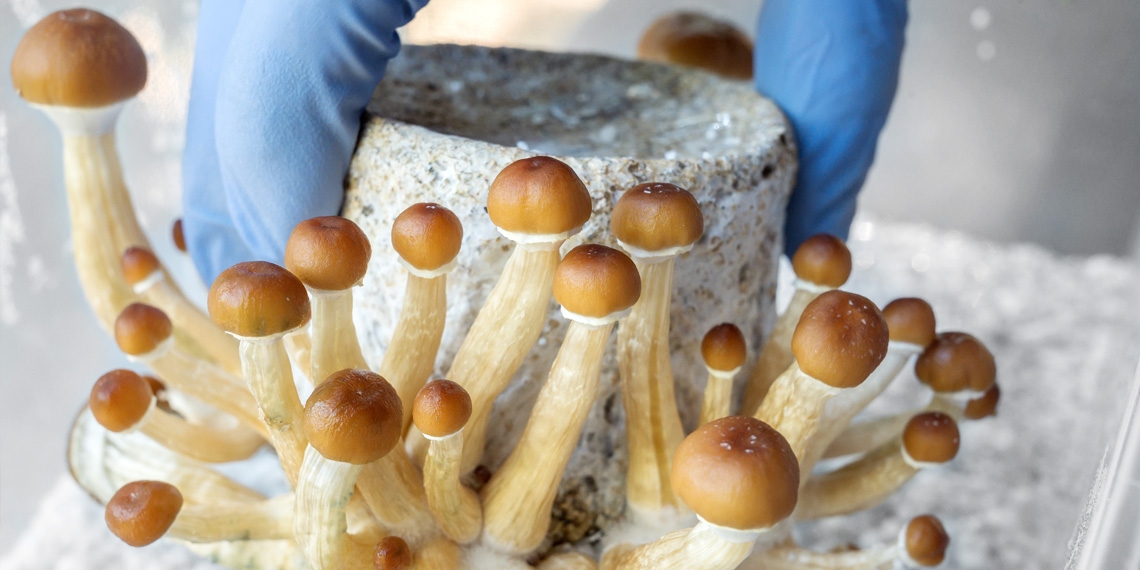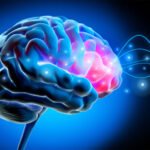Research into psilocybin’s promise as a mental health treatment is expanding beyond mood disorders. In a new study, researchers found that participants consumed the psychedelic substance in a therapeutic context reported reduced depression and improvements in their sleep quality. The findings were published in Current Psychiatry Reports.
Psilocybin is a naturally occurring compound found in certain species of mushrooms, often referred to as “magic mushrooms.” When ingested, psilocybin is converted in the body to psilocin, which interacts with serotonin receptors in the brain. This interaction leads to altered perception, mood, and cognition. These effects are often described as psychedelic, producing vivid visual and auditory experiences, changes in self-awareness, and profound emotional or spiritual insights.
Scientists are particularly interested in psilocybin because of its potential to treat mental health conditions like depression, anxiety, and post-traumatic stress disorder. Unlike traditional antidepressants, which can take weeks to show effects and often require long-term use, psilocybin has been shown in preliminary studies to produce rapid and lasting improvements in mood after just one or two sessions. This has led researchers to explore its mechanisms of action.
The new study, led by Matthew J. Reid and Robin Carhart-Harris, aimed to better understand whether psilocybin improves sleep quality and whether initial sleep disturbances influence the antidepressant effects of psilocybin.
“My research focuses on understanding the relationship between sleep disturbances and mental health, and how sleep interacts with the treatment process,” said Reid, an assistant professor of psychiatry and neuroscience at Johns Hopkins School of Medicine.
“In particular, I’m interested in how we might use sleep as a novel therapeutic target to replace pharmacological treatments or enhance their effectiveness. Exploring how this relationship might extend to psychedelic interventions seemed natural, and I was astounded that nobody had examined how psilocybin affects sleep in the medium to long term.”
The researchers recruited 653 participants planning to attend guided psilocybin sessions, such as retreats or ceremonial experiences, making this one of the largest studies to investigate psilocybin use in naturalistic, non-clinical settings.
About 60% of participants met the clinical threshold for significant depression, with the average depression severity falling within the mild-to-moderate range. Sleep disturbances were nearly universal, with all participants reporting some degree of sleep-related issues. Insomnia, particularly difficulty falling asleep, was the most common sleep complaint, followed by hypersomnia and early awakenings. Notably, for 26% of participants, sleep problems were their most severe depressive symptom.
“We were most struck by the finding that sleep symptoms seemed to dominate the profile of depressive symptoms among this cohort,” Reid told PsyPost. “Sleep disturbance is a frequent symptom of depression, but here, sleep disturbances were the most severe symptoms driving their depression—even more severe than symptoms like ‘feeling down or sad,’ which we typically associate with depression.”
In line with previous studies, the researchers found that psilocybin reduced depressive symptoms in participants. By two weeks after the session, depressive symptoms had dropped by an average of 33%, and by four weeks, they had decreased by over 50%. These improvements were more pronounced in participants who began with severe depression.
Sleep disturbances also improved following psilocybin use, although the changes were less pronounced than those observed for depression. Participants reported modest but statistically significant reductions in problems like insomnia and early awakenings. These improvements were evident at two weeks and remained stable through four weeks.
“There seems to be a small but reliable improvement in sleep following psilocybin administration in a therapeutic context,” Reid explained. “Whether this is due to the drug itself or some other indirect factor remains uncertain, and we aren’t able to determine that from the data.”
An important finding was the relationship between baseline sleep disturbances and depression outcomes. Participants with severe sleep issues at the start were less likely to achieve remission from depression, even if their depressive symptoms improved.
For example, individuals with pronounced insomnia or hypersomnia had lower odds of experiencing full recovery. This suggests that sleep disturbances might interfere with psilocybin’s therapeutic effects, potentially acting as a barrier to achieving optimal outcomes.
“Those with worse sleep seem to benefit less from psilocybin administration, which could have important implications for future clinical applications,” Reid told PsyPost. “But it is unclear why this occurs, and we need to study this in greater detail.”
The findings highlight the importance of considering sleep as a factor in psilocybin-assisted psychotherapy. However, as with all research, there are limitations to consider.
The lack of a control group makes it difficult to isolate psilocybin’s effects from other factors, such as the supportive retreat environment or participants’ expectations. Similarly, the naturalistic setting introduced variability in dosing, retreat protocols, and participant demographics. While this approach enhances the study’s ecological validity, it also complicates efforts to draw precise conclusions about psilocybin’s effects.
“It’s important to remember that these results were obtained ‘in the wild’ from people undergoing guided psilocybin administration of their own accord,” Reid said. “This wasn’t a controlled experiment conducted in a laboratory setting, like a clinical trial, so we need to account for potential bias, uncertainty, and the low signal-to-noise ratio inherent in this type of naturalistic research.”
The long-term goals for this line of research are “to continue exploring what role sleep, if any, may play in the mechanisms of psychedelic therapeutic processes,” Reid explained. “We have several ongoing research studies in that area and hope to share more findings relatively soon.”
The study, “Preliminary Evidence of Sleep Improvements Following Psilocybin Administration, and their Involvement in Antidepressant Therapeutic Action,” was authored by Matthew J. Reid, Hannes Kettner, Tessa F. Blanken, Brandon Weiss, and Robin Carhart-Harris.




